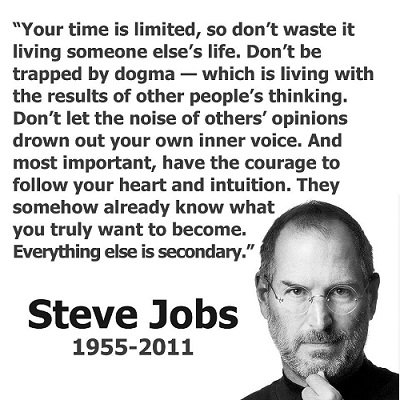Management Skills For YOUR Success




How to Stop Worrying and Start Living





Both heritable and environmental factors contribute to the Big Five personality traits...
Categories:Big Five personality traits
 Communication skills training
Emotional and/or behavioral disability
Emotional intelligence
Emotional literacy
Life skills
Social intelligence
Social skills
Soft skills
Communication skills training
Emotional and/or behavioral disability
Emotional intelligence
Emotional literacy
Life skills
Social intelligence
Social skills
Soft skills

Honesty-Humility, Agreeableness, and Emotionality factors
Journal of Personality and Social Psychology.
The five-factor framing of personality
Personality and Individual Differences
Journal of Personality
"Critique of Five-Factor Model (FFM)."its impact on structured learning
Psychological Bulletin
"An alternative "description of personality": the big-five factor structure". Journal of Personality and Social Psychology.
Personality and Social Psychology
Honesty-Humility, Agreeableness, and Emotionality factors
habitual patterns of behavior, thought, and emotion...method for developing personality models. language that describe behaviours and tendencies among individuals. a blend of the Honesty-Humility, Emotionality, and Agreeableness factors
The six factors, their facets, and the personality-descriptive adjectives that typically belong to these six groups are as follows:- Honesty-Humility (H):
- Facets: Sincerity, Fairness, Greed Avoidance, Modesty
- Adjectives: Sincere, honest, faithful, loyal, modest/unassuming versus sly, deceitful, greedy, pretentious, hypocritical, boastful, pompous
- Emotionality (E):
- Facets: Fearfulness, Anxiety, Dependence, Sentimentality
- Adjectives: Emotional, oversensitive, sentimental, fearful, anxious, vulnerable versus brave, tough, independent, self-assured, stable
- Extraversion (X):
- Facets: Social Self-Esteem, Social Boldness, Sociability, Liveliness
- Adjectives: Outgoing, lively, extraverted, sociable, talkative, cheerful, active versus shy, passive, withdrawn, introverted, quiet, reserved
- Agreeableness (A):
- Facets: Forgivingness, Gentleness, Flexibility, Patience
- Adjectives: patient, tolerant, peaceful, mild, agreeable, lenient, gentle versus ill-tempered, quarrelsome, stubborn, choleric
- Conscientiousness (C):
- Facets: Organization, Diligence, Perfectionism, Prudence
- Adjectives: organized, disciplined, diligent, careful, thorough, precise versus sloppy, negligent, reckless, lazy, irresponsible, absent-minded
- Openness to Experience (O):
- Facets: Aesthetic Appreciation, Inquisitiveness, Creativity, Unconventionality
- Adjectives: intellectual, creative, unconventional, innovative, ironic versus shallow, unimaginative, conventional
Educational Importance
The Collaborative for Academic Social and Emotional Learning (CASEL)
has identified 22 programs in the US that are especially comprehensive in
social-emotional learning
coverage and effective in documented impacts.UNESCO research found that
young people who develop speaking/listening skills and who get to know others
without WIIFM attitude have improved
self-awareness, social-emotional adjustment
and classroom behavior; in addition, self-destructive and violent behavior also decreased.
People skills are also important for teachers in effective classroom management.
Educators have found that more is needed than a degree in the field they are teaching.
Knowing how to communicate and teach people
instead of simply teaching their subject will help make a difference in the classroom.
It is identified that 50 percent of classroom success lies in effective interpersonal relationships
while the other 50 percent lies within academic skills.
Requirement of people skills
education is greatly emphasized within higher education and recruiters stress the required focus on this skills for securing entry level jobs right off from campus placements
Everything you need to know in just 10 minutes or less to enjoy a healthier, happier life. As a 52 year old Ironman triathlete, I can offer you a unique pers...
The Family First Workbook Specific Tools Strategies and Skills for Creating a Phenomenal Family Book

06-28-17-John And Heidi Show-DrGregWells-TheRippleEffect-PLUS-Ross&Rachel-TrillMedia-Instagram

Journalist and author Alex Prud'homme discusses his new book "The Ripple Effect: The Fate of Fresh Water in the 21st Century" as part of the Human Rights to ...




 How to Win Friends and Influence People
How to Win Friends and Influence People





